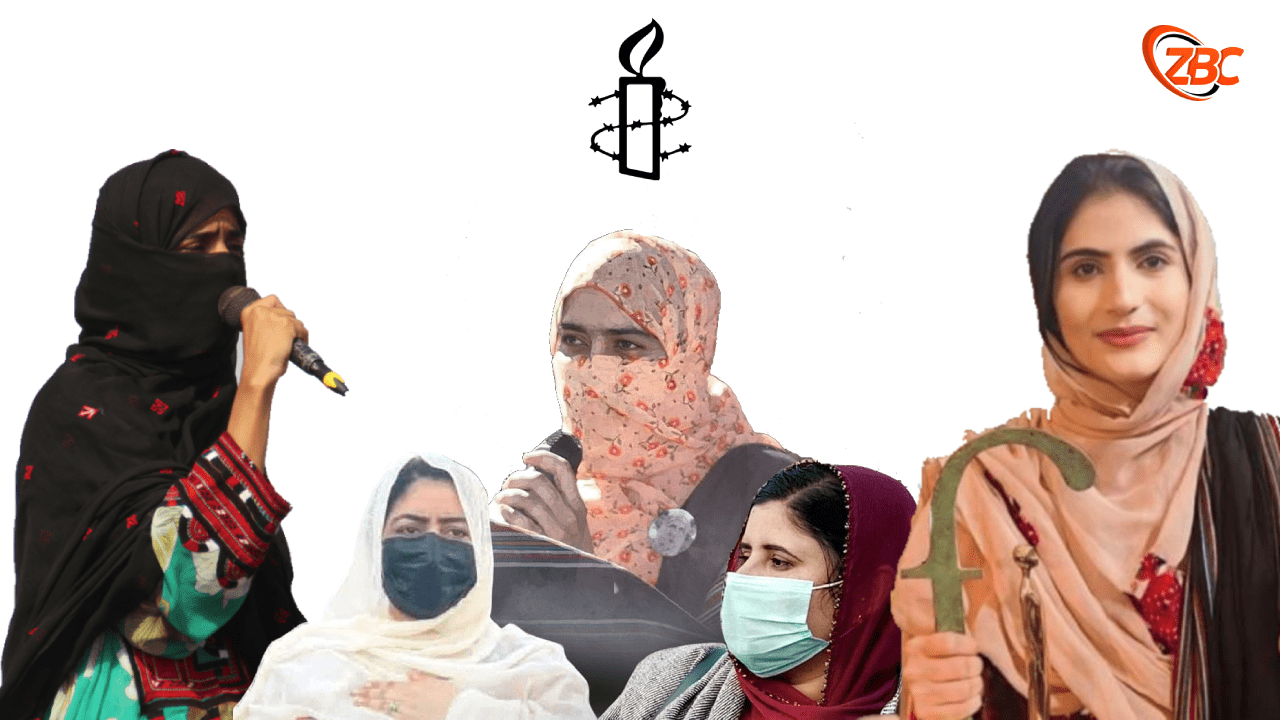
KARACHI: Amnesty International has denounced Pakistan’s decision to place 32 individuals, including prominent Baloch activists, on a terrorist watchlist under Section 11-EE of the Anti-Terrorism Act (ATA) 1997, calling it a blatant violation of human rights and due process.
Babu Ram Pant, Amnesty International’s Deputy Regional Director for South Asia, criticized the move, stating that the activists were blacklisted “arbitrarily and without the opportunity to challenge the decision,” violating their fundamental rights to liberty, privacy, and freedom of movement.
“The arbitrary manner in which these individuals, including peaceful Baloch activists, have been put on a terrorist watchlist without due process is an affront to justice and human rights,” Pant said. “Pakistan’s anti-terrorism law has repeatedly been misused to stifle dissent and target those who criticize the authorities.”
Amnesty reiterated its long-standing concerns that Pakistan’s ATA fails to meet international human rights standards, giving sweeping powers to security forces and allowing arbitrary detention and proscription of individuals engaged in peaceful activism.
The organization also raised alarm over reports of recent military operations and alleged unlawful killings in parts of Balochistan, particularly in Zehri, Khuzdar district. According to reports, a strict lockdown has been in place there since September 25, with all movement restricted and internet services suspended for months.
“We call on the Pakistani government to immediately remove all activists from this list, as well as from other arbitrary designations such as the Exit Control List and Passport Control List,” Pant added. “Authorities must ensure due process and allow those affected to challenge their inclusion before an independent and impartial court.”
Amnesty further urged the government to conduct an independent and transparent investigation into the civilian casualties reported in Zehri, lift the internet blockade, and ensure all security operations comply with international law.
It is pertinent to mention that the notifications issued by the Balochistan authorities on October 2 and 16 placed 32 individuals from Khuzdar, Kech, and Chagai districts under the Fourth Schedule of the ATA, designating them as “proscribed individuals.” The list includes women activists such as Dr. Sabiha Baloch, Sammi Deen Baloch, Naz Gul, Syed Babi Sharif, and Shalee Assa.
Those designated face heavy surveillance, strict movement restrictions, and potential financial investigations affecting them and their families. Reports from the region suggest that several civilians, including children, have been killed during recent military operations in Zehri.


